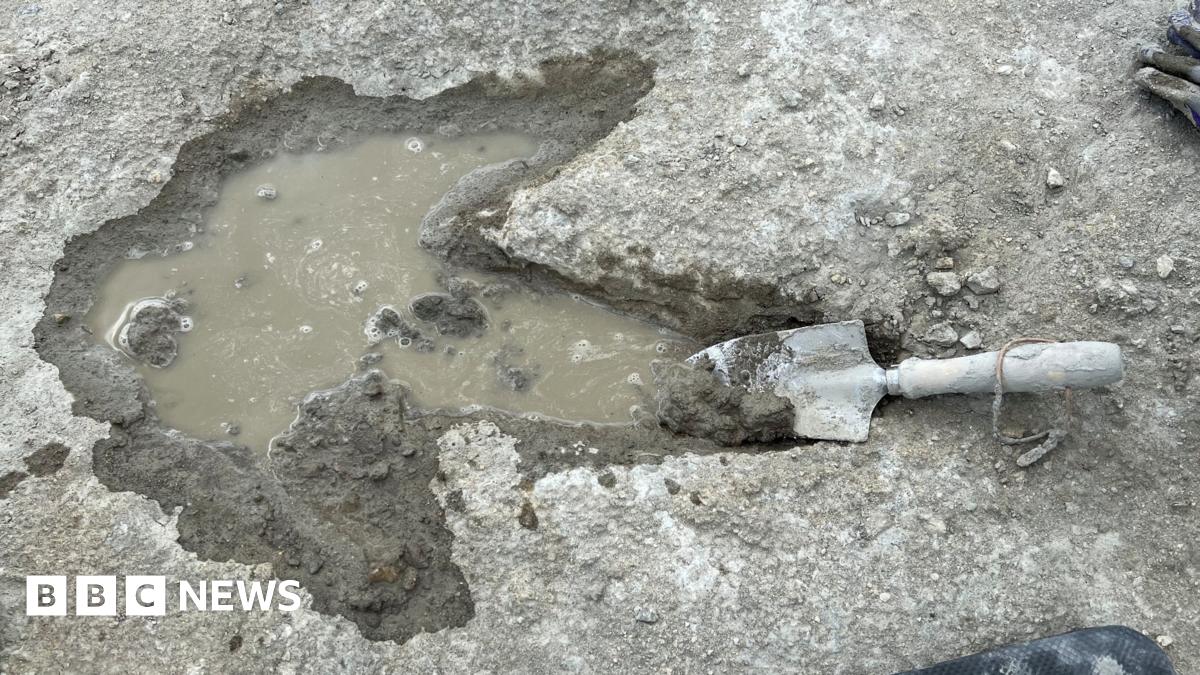- cross-posted to:
- fossils
- cross-posted to:
- fossils
cross-posted from: https://feddit.uk/post/22173199
The UK’s biggest ever dinosaur trackway site has been discovered in a quarry in Oxfordshire.
About 200 huge footprints, which were made 166 million years ago, criss-cross the limestone floor.
They reveal the comings and goings of two different types of dinosaurs that are thought to be a long-necked sauropod called Cetiosaurus and the smaller meat-eating Megalosaurus.
The longest trackways are 150m in length, but they could extend much further as only part of the quarry has been excavated.
“This is one of the most impressive track sites I’ve ever seen, in terms of scale, in terms of the size of the tracks,” said Prof Kirsty Edgar, a micropalaeontologist from the University of Birmingham.
…
This summer, more than 100 scientists, students and volunteers joined an excavation at the quarry which features on the new series of Digging for Britain.
The team found five different trackways.
Four of them were made by sauropods, plant-eating dinosaurs that walked on four legs. Their footprints look a bit like an elephant’s - only much much bigger - these beasts reached up to 18m in length.
Another track is thought to have been created by a Megalosaurus.
“It’s almost like a caricature of a dinosaur footprint”, explained Dr Emma Nicholls, a vertebrate palaeontologist from the Oxford University Museum of Natural History.
…
One area of the site even reveals where the paths of a sauropod and megalosaurus once crossed.
The prints are so beautifully preserved that the team have been able to work out which animal passed through first - they believe it was the sauropod, because the front edge of its large, round footprint is slightly squashed down by the three-toed megalosaurus walking on top of it.
…
The future fate of the trackways hasn’t yet been decided but the scientists are working with Smiths Bletchington, who operate the quarry, and Natural England on options for preserving the site for the future.
They believe there could be more footprints, these echoes of our prehistoric past, just waiting to be discovered.
The excavation is featured on Digging for Britain on BBC Two at 20:00 on Wednesday 8 January. The full series will be available on BBC iPlayer on 7 January


